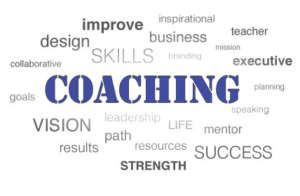Coaching vs. Instructing,There Is A Difference
Fitness professionals freely use the term “coaching” on a daily basis. However, to comprehend this term we first need  to examine the term “instructing”.
to examine the term “instructing”.
Definition of Instructing
The website dictionary.com defines the term “instructing” as supplying or furnishing knowledge to a person. This site goes on to state that instructing uses a systematic method for imparting this knowledge, such as in educating, teaching, or training someone.
This definition seems to explain what CrossFit affiliates and personal trainers do each day. Yes, some coaching may be involved with certain students or clients. However, a high percentage of them instruct rather than coach.
What Is Coaching?
Coaching targets the athlete’s possibilities rather than concentrating of his or her mistakes.
A successful coach realizes an athlete has certain internal issues that often are more counterproductive to success than the athlete’s physical issues are to his or her success.
Coaching is about assisting the athlete in unlocking his or her own potential to optimize his or her athletic performance.
It could be trickier to stop instructing than to start learning how to coach effectively.
Regardless of whether you counsel, mentor, facilitate, or coach, your effectiveness depends, for the most part, on your belief in the potential of a person.
You will be unsuccessful being a coach if you do not feel that your athletes have possibilities beyond those of which they exhibit at present.
Coaches need to consider not just the present performance level of their athletes, but also their future potential.
[color-box]Grab your copy of “When is Mental Strength Coaching Useful? HERE[/color-box]
We, as coaches must believe the best is yet to be, to bring out any athlete’s full potential.
We need to develop an optimistic attitude if we are going to coach effectively to bring out the often hidden talents of the athletes we work with on a daily basis.
Coaching can happen in one brief moment or through multiple, sixty-minute sessions.
Coaches need to explore the future potential of their athletes instead of just their present performance level.
Athletes develop self-confidence when they perform positive actions, make their own decisions and realize they are responsible fully for not just their failures, but also for their successes.
Coaches have an obligation to guide athletes into seeing their potential clearly enough to spur them on to success with their performances. At the same time, coaches need to help remove any external and internal obstacles that are standing in the way of the athletes reaching greatness. The main goal for coaches is to build self-confidence in their athletes.
Athletes develop self-confidence by accumulating achievements and understanding that the achievements come about through their own efforts.
In addition, they need to know their parents, teammates, and coaches believe in their abilities, as this will spur them on to make their own decisions and choices with a confident frame of mind.
Characteristics of Coaching
Effective coaching involves building responsibility and awareness.
What Is Awareness?
Awareness empowers the athletes. Athletes have to be aware to stay in control. Otherwise, whatever they are unaware of controls them.
Awareness is the first important characteristic in coaching. This is a byproduct of focused concentration, clarity, and attention.
Athletes must be aware of their bodily sensations to develop their physical skills.
One of the most efficient methods of increasing a person’s physical prowess is for an athlete to increase his or her awareness of any sensations during physical activity.
Coaches in the majority of sports today fail to comprehend this point, as they only impose their methods from the outside and omit the internal needs of athletes.
Corresponding inefficiencies and discomforts with a movement are minimized or eliminated when the athlete has kinesthetic awareness of the physical movement.
This results in form improvement in fluidity and efficiency of the individual athlete’s body, instead of an average body that the book discusses.
Minds and bodies vary greatly between people. How does an athlete know how to utilize his body the best? Only through awareness can he or she discover the best his or her body can perform.
The athlete’s personal attributes and preferences are suppressed during the athlete learning the correct method to perform a movement, which makes it easier for the coach.
However, the alternative of coaching to increase awareness is to highlight and discover the unique abilities of each athlete’s mind and body. This approach will build the athlete’s self-confidence and ability without the need of the coach’s perception.
Awareness allows an athlete to know what is occurring around him or her. Self-awareness, on the other hand, is the athlete knowing what he or she is experiencing personally.
What Is Responsibility?
Responsibility is another important goal or concept for coaching. In addition, responsibility is vital to attain optimum performance.
An athlete’s commitment and performance increases when he or she can select, accept and take responsibility for his or her own actions and thoughts.
Performance will not increase in an athlete when he or she is simply expected or commanded to be responsible, especially if he or she does not accept this idea fully.
If the coach provides advice that fails, the athlete will blame the coach. The coach trades his advice for the athlete’s responsibility, which is seldom effective.
Without a doubt, awareness and responsibility are two essential qualities necessary for high performance.
Self-motivation, self-confidences, clarity, commitment, choice, awareness, and responsibility along with action are all byproducts of effective coaching.
Now that you understand this overview of the definition of coaching, how strong are your coaching skills?


